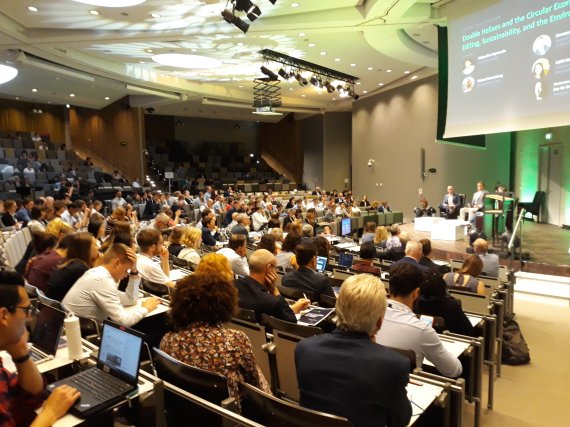he explanation that CRISPR-Cas is safer than GM techniques and works faster than conventional breeding makes no impression in the general discussion, because people are not concerned about those aspects. They worry about such things as health, climate and inequality. Conference participants who organise public debates and citizens’ initiatives on gene editing therefore advised scientists to explain what it is they want to create to solve these problems and why they need CRISPR-Cas to achieve it.
Castration
A great example of this approach was brought forward by Johan van Arendonk of the breeding company Hendrix Genetics. Together with a biotech company, Hendrix is working on breeding male piglets that remain in prepuberty. As a result, boar taint does not arise, and the surgical castration of the piglets becomes unnecessary. Hendrix wants to use gene editing to solve a welfare problem in pig farming. ‘We published this plan and now want to discuss whether it is socially acceptable’, Van Arendonk explained at the conference.
Diseases
The Dutch breeding companies for floriculture are also considering such an approach, said Niels Louwaars, chair of the branch organisation Plantum. Floriculturists are required to sharply reduce the use of chemical pesticides and therefore need plants with better resistances to pests and diseases. For that, they need techniques such as CRISPR-Cas, but also a rapid admission of the environmentally friendly varieties that have been developed using these techniques.
According to Van Arendonk, CRISPR-Cas does not represent a revolution; it is simply one of the techniques that can be used. ‘It should primarily be used to tackle issues for which there are currently no other tools.’ We should not use CRISPR-Cas to increase production, but rather to reduce the use of antibiotics in animal husbandry.
Basic knowledge
It makes no sense for researchers to explain why their technique is the best in a dialogue. They would do better to explain how the breeding of plants and animals works, in other words: provide basic knowledge, because the public often lacks that. ‘We certainly need scientists in the public debate as well’, says Anita van Mil, who organised citizen panels on technology in England, ‘but those researchers should provide robust and credible knowledge.’

 Photo: Albert Sikkema
Photo: Albert Sikkema